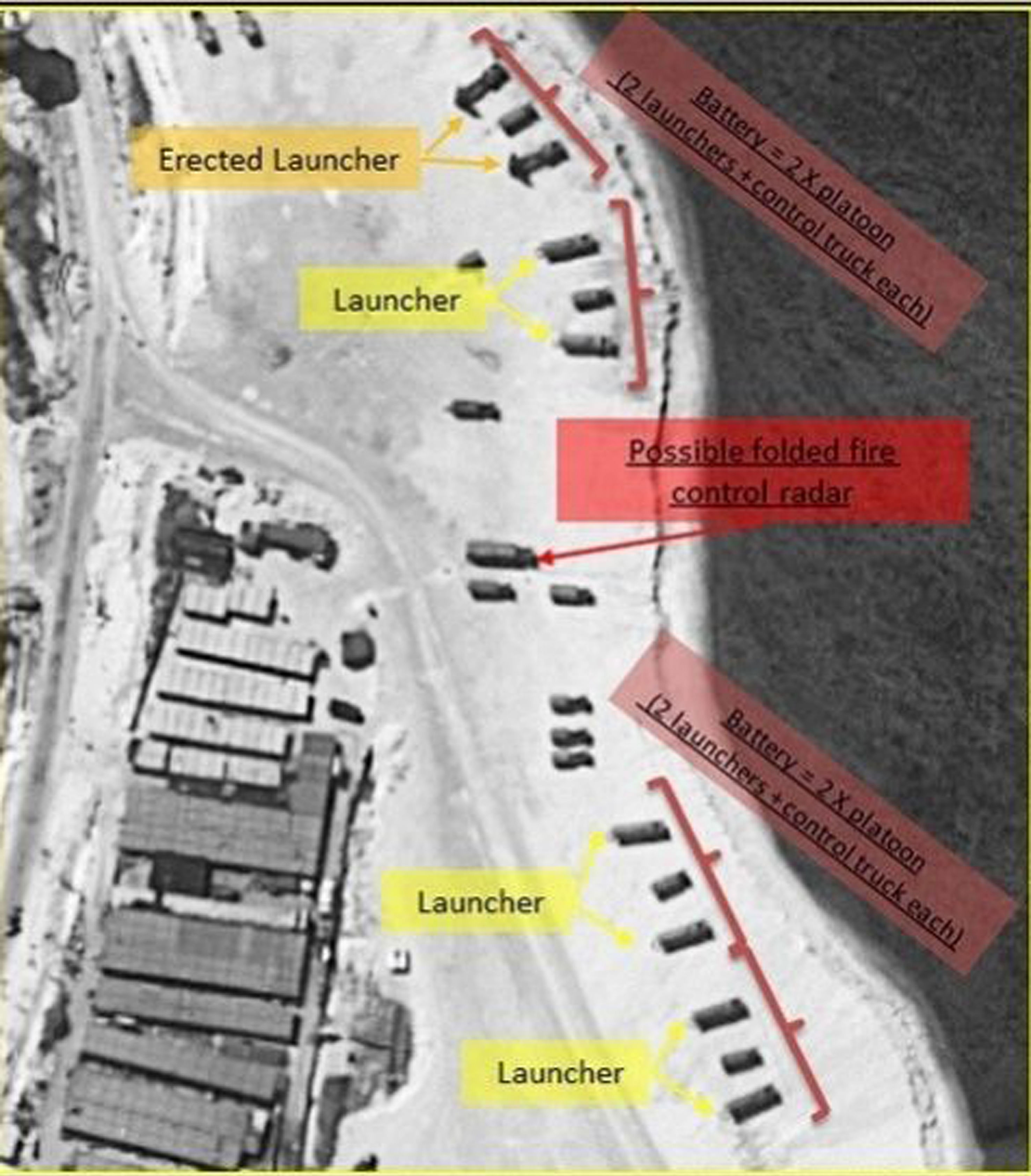China has deployed an advanced surface-to-air missile system to a contested island in the South China Sea, a move set to escalate tensions even as United States President Barack Obama urged restraint in the region at a summit with Asean leaders.
Two batteries of eight missile launchers and a radar system were deployed to Woody Island in the past week, according to new satellite images first shown on Fox News. The island is part of the Paracel chain also claimed by Vietnam and Taiwan.
The Pentagon has evidence that China has deployed missiles on the island, a US official later told The New York Times on condition of anonymity, while Taiwan's Defence Ministry confirmed in a statement that China had placed anti-aircraft missiles there.

This is likely to be the first time such weapons have been deployed in the Paracels since China seized control of the islands from South Vietnam in 1974, although reports said fighter jets had landed on Woody Island's newly enlarged runway last November.
Responding to questions at a press conference yesterday, Chinese Foreign Minister Wang Yi did not deny or confirm the reports, saying only that they were an attempt by certain Western media outlets to create news. More focus should be placed instead on China's building of lighthouses to improve shipping safety in the region, he said.

"As for the limited and necessary self-defence facilities that China has built on islands and reefs where we have people stationed on, this is consistent with the right to self-protection that China is entitled to under international law."
The Chinese Defence Ministry was quoted by the Global Times paper as saying that air and sea defence deployments have been in place on the Paracel Islands for many years, but certain Western media outlets were now hyping up the "same old China threat theory".
News of the missile deployment came as Mr Obama called for a halt to the militarisation of the South China Sea and "tangible steps" to reduce tension in the region, as he wrapped up a summit with Asean leaders in California on Tuesday.
Beijing's recent activities, including reclamation works and building of air strips on disputed isles, have alarmed the US and its Asian allies. China has competing claims in the sea with Brunei, Vietnam, the Philippines, Malaysia and Taiwan.
Yesterday, Australian Foreign Minister Julie Bishop, who is in Beijing for annual strategic talks, urged restraint and for all sides to settle disputes peacefully.

Experts said the missile deployment is likely China's effort to underscore its control over the islands, especially in the light of the US' freedom-of-navigation operations to ensure unimpeded passage through the vital waterway. Last month, a US warship sailed close to another island in the chain.
But the deployment is likely to be seen as provocative and will put into question Beijing's claim that it wants to avoid further militarisation of the region, said analysts.
But some pointed out that China did not take the more provocative move of placing missiles on islands further south, in the Spratly group, where the militaries of four nations have a presence.
-
HQ-9 missile facts
-
•It is a two-stage active radar-homing surface-to-air missile
•Has a range of 200km
•Weighs almost 2 tonnes
•Has a length of 6.8m
•Armed with a 180kg warhead
•Has a maximum speed of Mach 4.2
"Overall, it reinforces the trend of militarisation in the South China Sea and is a slap in the face to Asean and the US, which have just called for an end to such activities," said Dr Ian Storey from the Iseas-Yusof Ishak Institute.
The deployment will also pit the world's two largest economies against each other in a game of increasingly higher stakes.
Dr Chong Ja Ian of the National University of Singapore said there may be less incentive for the US to back down in the short run, given that it has only recently been highlighting its freedom-of-navigation operations and commitment to the region.
"What looks like the US backing down may encourage speculation about American commitment to the region. This is something the Obama administration is likely to want to avoid, given that the rebalance is a centrepiece of the Obama foreign policy legacy," he said.
